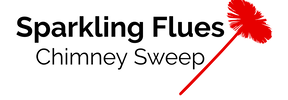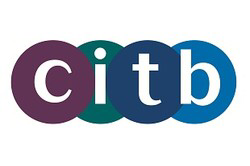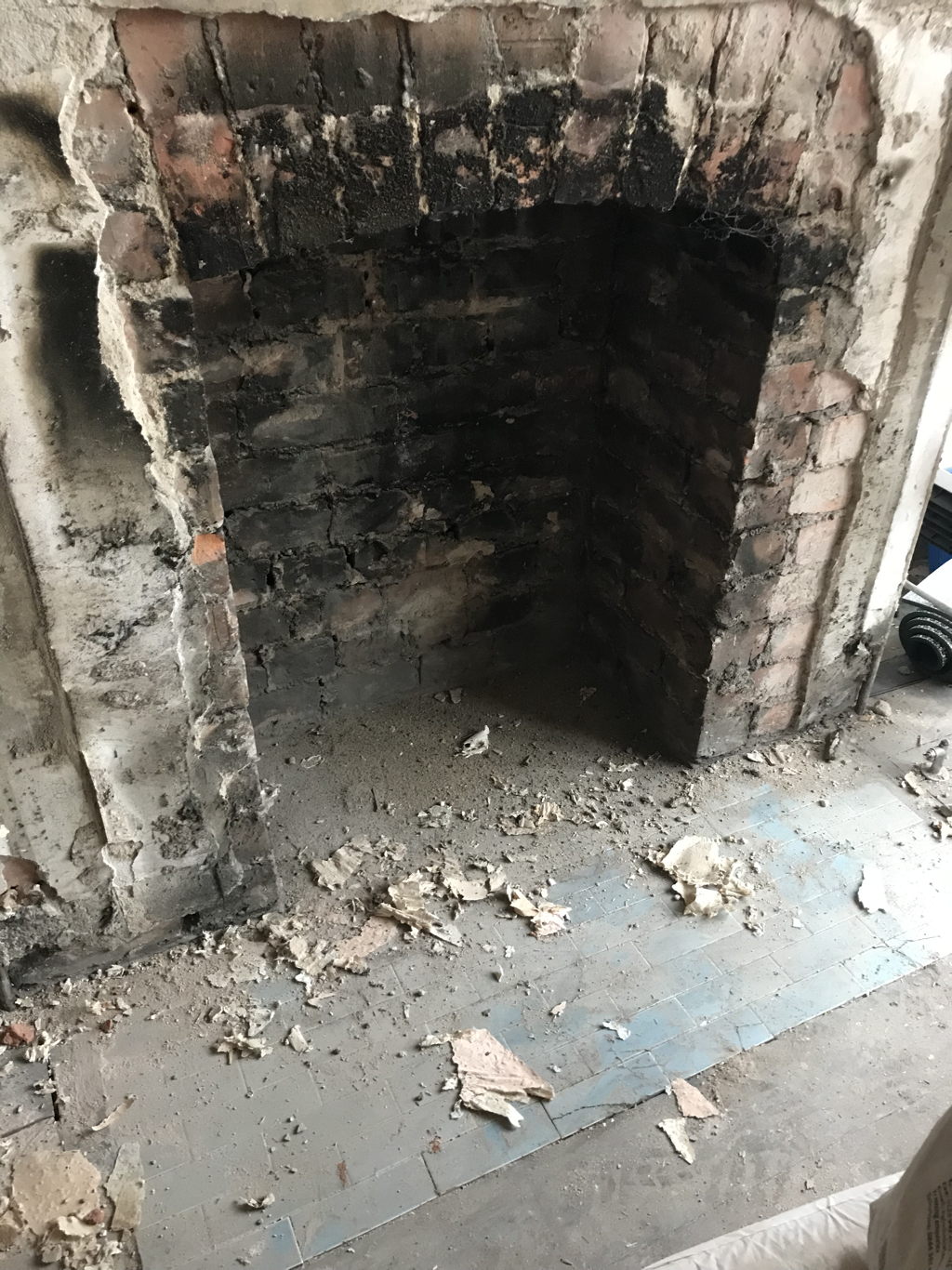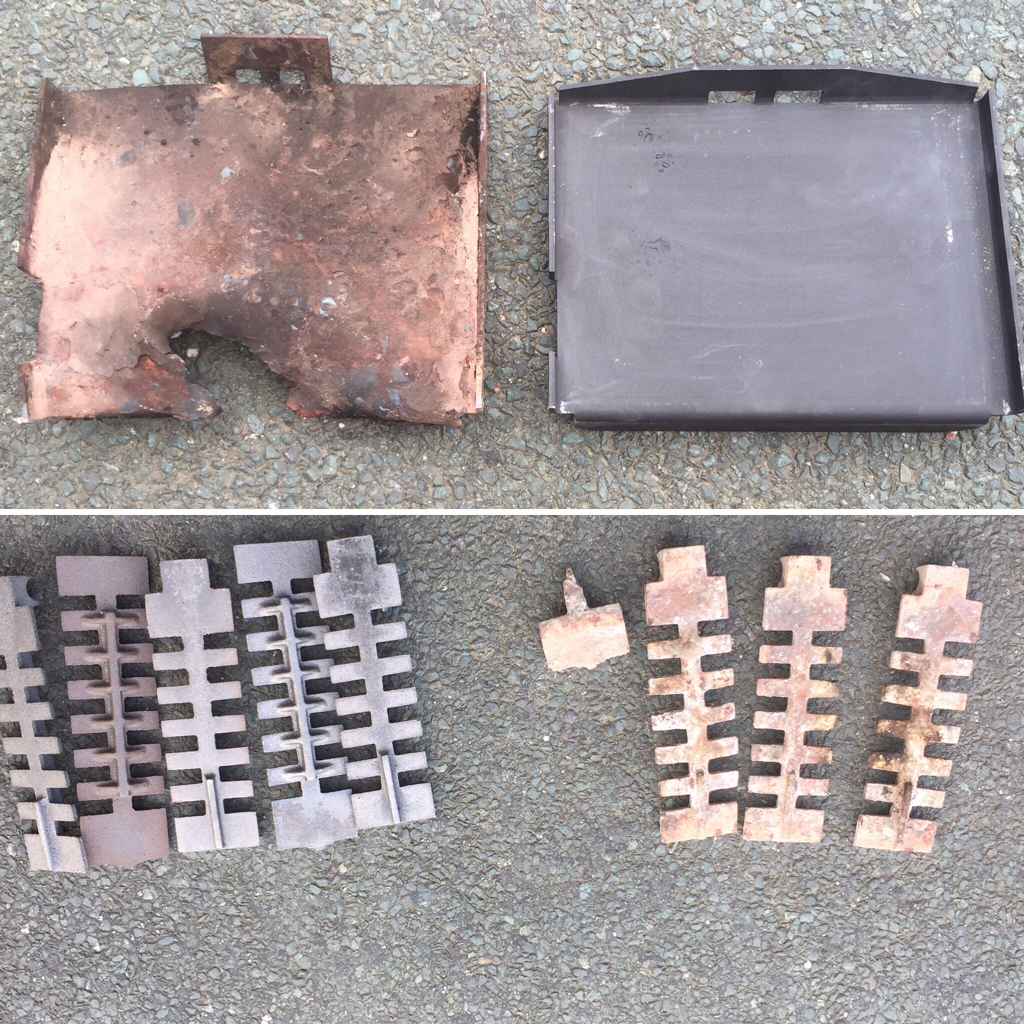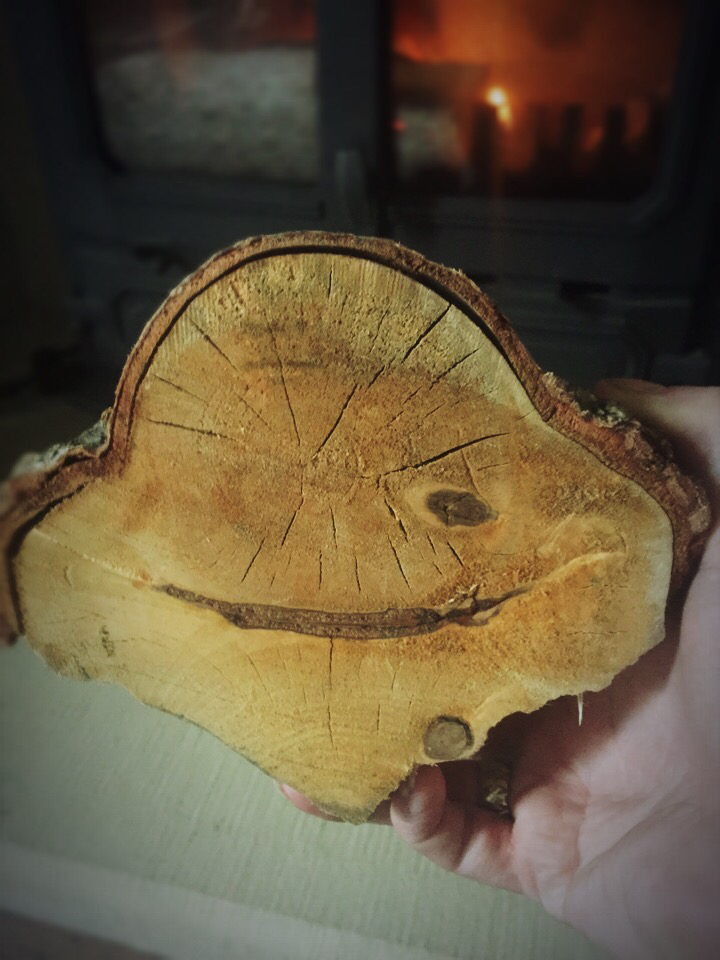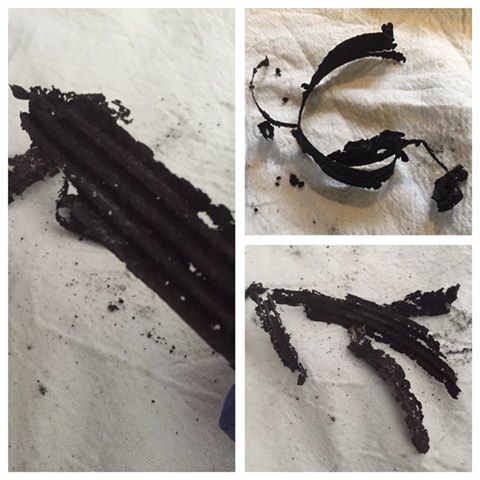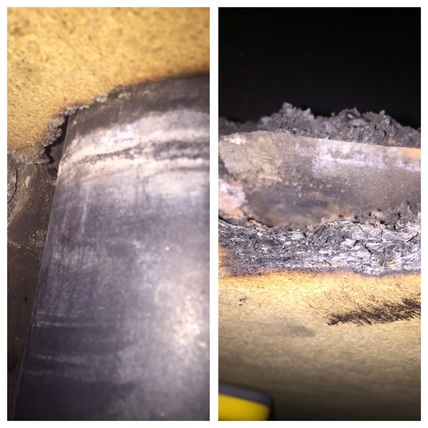A surprised customer this week! 😊. Knowing of the marriage this coming weekend during our initial conversation, I knew how superstitious the bride to be was about having her #chimney swept before she got married. Following the sweep today I gave her a lucky jar of soot and a genuine lucky #horseshoe. #ActOfKindness #WeddingDay
|
Recently we attended a meeting at the CITB (Construction Industry Training Board) to discuss up and coming changes and opportunities for our industry. It was great to meet with some of my fellow sweeps like https://www.sweepsmart.co.uk/. We discussed the challenges we face on a day to day basis and our views on Clean Air Strategy that has been recently published by DEFRA in May 2018. .
We’ve visited a number of customers recently that are renovating their house and in particularly wishing to have an stove installed. They have wanted the chimney to be swept in readiness for a stove and thinking of installing it themselves.
Please be very careful, solid fuel appliances must be installed by a verified competent person for example a HETAS engineer, or certified by a building inspector if independently fitted. An engineer will issue you with a Certificate of Compliance (Building Regulation Compliance Certificate) on the completion of installation work. The certificate demonstrates that the installation complies with the relevant Building Regulations. The information on the certificate is used to record your installation, and used to notify the Local Authority. This self certification takes the place of a Local Authority Building Notice. The information can be required to validate your home insurance and will be required in any home selling process. Failure to notify the Local Authority can be an offence resulting in enforcement action. As always, take care, stay safe and ensure those chimneys are regularly swept 🔥🎩 #sparklingflues There has been a lot of talk recently in the media about the use of wood burning appliances and open fires. I am often asked if the Government are going to ban wood burning stoves or open fires, and I see some customers quite concerned over these speculations. In a latest publication from DEFRA they state “We are not considering banning domestic burning. The Government recognises that many households have installed wood-burning stoves, and the Government is not seeking to prevent their use or installation. But we are keen to encourage consumers to switch to cleaner wood burning, this will directly benefit consumers in their homes, as well as improving the local environment.” DEFRA are currently seeking evidence from businesses like ourselves within the industry and data on the use of solid fuels such as house coal, smokeless coal, manufactured solid fuels and wet wood for domestic heating. The Government’s long term strategy is to see households move away from these polluting fuels towards cleaner technologies. DEFRA have recently produced a practical guidance to encourage clean burning to the public. Please try to take the time to read this advice. As you know we do try to encourage the use of good quality dry wood and smokeless fuels, as well as ensuring your appliances and chimneys are regular swept and maintained. Don’t forget that annual sweep!
With us all now of taken our decorations down for another year just a thought if you're thinking of burning your old Christmas tree.
Please don't.........pine wood has an exceptionally high resin content; this resin becomes creosote (tar) when burnt and is very likely to ‘tar up’ the flue. Also the needles and small branches may ‘flare’ when burnt and could ignite any residual soot or tar in the chimney. So please don't burn the trees! 🎄🔥 I've seen a few new customers this week using household coal in their stoves completely unaware of the damage they are causing to the appliance.
When coal is added to the appliance it has a delayed burn, and does not immediately start to burn. However, what it does is release large quantities of thick highly volatile yellowish-grey smoke, which fills up the chimney flue. This is extremely dangerous. When the smoke reaches a high temperature it can cause an explosive flash. The force of the blast can blow out the stove glass or even blow open the doors of your stove. If you have burnt household coal before but have not suffered an explosive flash, you will still damage the inside of your stove. The volatile smoke released by the coal can still catch fire and can burn for up to 30 minutes. This can result in a twisted baffle plate, warped grates, damaged liners. For this reason, household coal should only be used on open fires, and providing you're not in a smoke free area. Just a few points points on keeping your chimney clean and safe and especially this time of year it is important to have your chimney cleaned before the winter.
A clean chimney can help prevent fires and structural damage to your property. Regular cleaning of your chimney or flues will eliminate the build up of soot and clear obstructions such as bird or animal nests, leaves and debris. You will also reduce emissions into the atmosphere by assisting the complete combustion of the fuel. It is not sufficient to use a vacuum cleaner and you should ensure your chimney flue is inspected regularly to prevent fires breaking out. Remember that fire guards can prevent serious injury or death and spark guards can prevent a serious fire. Chimneys should be swept:
This week I came across a happy looking log. I felt rather emotional about it........especially when its smiling and winking at you just before you put it in the stove, what do you do?
Some me may think I'm ridiculous, but I couldn't burn it. So it's earned a place as a fireside accessory now. Ive attended a number of chimneys recently that have a stainless steel liner installed but unfortunately has corroded. This picture is the result of corrosion caused when sulphuric acid is formed within the flue. If left unchecked and not regularly swept a stainless steel flue liner will corrode, allowing deadly gasses to escape.
Remember stainless steel flue liners are installed only as a temporary measure and will need replacing eventually, some liners are only guaranteed for 10 years whereas some maybe 25 years. But either way, having the flue liner regularly swept and inspected will prolong the life of it. Some fuels used on an appliance can generate highly corrosive conditions within a flue. The effect of these conditions is the rapid corrosion and failure of the stainless steel flue, requiring the stainless steel flue to be replaced.. This post has been quite a popular on Facebook this week. This is what happens folks when wood is used as a register plate. Always ensure you use a HETAS registered installer. Thank goodness this did not result in a fire, but once again previous chimney sweep had not addressed this. Unfortunately this appliance has been condemned and will now be installed correctly. #hetas #The Guild of Master Chimney Sweeps |
||||||
